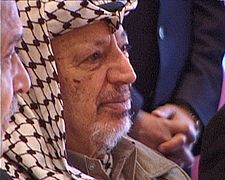
Today I watched a 30-minute report on BBC called “Licence to Torture.” It is mainly an investigative report that attempts to reveal some of the behind-the-scenes actions conducted by the Bush administration. The reporter, Hilary Anderson, interviews various lawyers and military personnel regarding utilizing torture (or as they call it “enhanced interrogation techniques”) and questions the legality of this practice both under international law (as stipulated in the Fourth Geneva Convention and various human rights conventions) and American law. Declassified CIA documents raise many questions regarding who issued the orders to follow these techniques; was it George Bush, Donald Rumsfeld and Dick Cheney? Or was it just the CIA acting on its own? Or was it just the interrogators being creative?
Under International Law, torture is defined as:
“For the purposes of this Convention, torture means any act by which severe pain or suffering, whether physical or mental, is intentionally inflicted on a person for such purposes as obtaining from him or a third person information or a confession, punishing him for an act he or a third person has committed or is suspected of having committed, or intimidating or coercing him or a third person, or for any reason based on discrimination of any kind, when such pain or suffering is inflicted by or at the instigation of or with the consent or acquiescence of a public official or other person acting in an official capacity. It does not include pain or suffering arising only from, inherent in or incidental to lawful sanctions.”
So what exactly are these acts? Is Water Boarding considered torture? Cori Crider on a debate on BBC considers this act as an act of torture and objects to the usage of the term “simulated drowning”. She talks about other torture techniques such as extreme sensory deprivation, extreme temperatures, sleep deprivation, playing extremely loud music. David Rivkin does not think that Water Boarding is torture and he contends that opponents of such practices have a problem which is that they tend to consider certain “unpleasant acts” (as he so simplistically puts it) as torture. I do not understand how he could call something horrendous like Water Boarding (where the person being tortured becomes convinced that he/she is being drowned to death) as an unpleasant act.
Check out the debate on:
http://www.youtube.com/watch?v=wQ-F2y_Bzv4
Check the report “Licence to torture”:
While each state has a right to seek the security of its citizens, I find abhorrent the idea that human rights can be suspended claiming that by doing so the nation is more secure. John Yo, a lawyer who apparently sought to justify the so-called “enhanced interrogation techniques” and wrote memos trying to show its legality under American law, contends that torture and the techniques that he defends made the US more secure because since 9/11 nobody was able to launch any attacks on the US. That clearly is a preposterous claim since most of the time the information that they get from the detainees under those inhumane circumstances are not accurate and cannot be used as intelligence to deter and prevent attacks. It interesting to note that Obama has said that CIA agents who used these harsh interrogation techniques will not be prosecuted.
So all of this made me think of another set of questions; most of which have been under extensive debate in the scholarly arena. Should Human Rights and Civil Liberties be suspended in certain situations such as war? Is the state allowed to breach its own laws for the sake of so-called national security? If yes, then how far is the state allowed to go and who exactly becomes the target when that happens? In a post-9/11 world, Arabs and Muslims became the primary target of many national security agencies in the West; isn’t that prejudice? Do pre-conceived perceptions (or misperceptions) form a sufficient basis that would allow a police officer for example to apprehend somebody because he has a suspiciously long beard?

 Search International Relations Topics
Search International Relations Topics